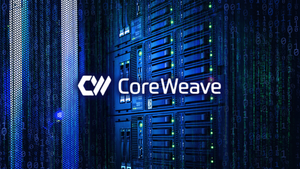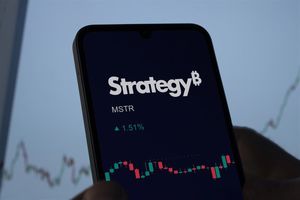In today’s research published in Science Advances, HPE improves prediction that it will take 600 million years to simulate a quantum problem on a supercomputer by dramatically reducing the time with new prediction of 73 days
Hewlett Packard Enterprise (NYSE: HPE) today announced new research that demonstrates how supercomputers can be used to test and benchmark computational performance for the quantum computing community, redefining theoretical performance claims that future quantum computers will deliver. The research results reveal how a problem, called Gaussian Boson Sampling (GBS), which is considered to be a domain of quantum computing, was achieved using high performance computing (HPC), or supercomputing, expanding the boundary of problems that supercomputers can address.
In the new research, team members with HPE’s HPC and AI Business Group and Hewlett Packard Labs, HPE’s R&D arm, collaborated with the University of Bristol and Imperial College London to improve a previous prediction that it would take 600 million years to simulate a Gaussian Boson Sampling problem of the same size as an experimental quantum computer, on the world’s largest supercomputer. After developing an algorithm and applying it to a simulation of the GBS problem that ran on smaller, older generations of HPE-built supercomputers, the teams used the simulation results to predict it would take just 73 days on an even faster supercomputer.1 The novel algorithm represents a billion-fold speed-up compared to previous approaches for classical computers.
“Today’s research, a result of a strong collaboration between teams at HPE, University of Bristol and Imperial College London, was inspired by the leading edge of quantum computing development to extend the value that supercomputing delivers, when combined with optimized algorithms, to accurately compare computational advantage between classical computers and quantum computers, and set new standards of performance,” said Justin Hotard, senior vice president and general manager, HPC and AI at HPE. “We look forward to furthering this effort by partnering with the quantum computing community and integrating the HPE Cray supercomputer product line with other enabling technologies to advance the journey to developing future quantum computers.”
New research reveals the expanded boundary of computational advantage with supercomputing
The latest experiment showcases the increasing value of supercomputing and how it can be used to test and support current or near-term quantum experiments that help to accelerate the commercial relevance of quantum computers.2 The research also predicts that as supercomputing continues to advance, such as with upcoming exascale supercomputers that are up to 10 times faster than today’s most powerful supercomputers, quantum computing results can be verified in even shorter windows of time, from months to weeks on faster systems.
HPE’s latest research outcome is a powerful example of the sustained value of HPC and the potential for novel algorithms in classical and quantum computing. HPE and teams were inspired by claims made in a previous paper, the Quantum Computational Advantage Using Photons, from the University of Science and Technology of China (USTC). In the paper, USTC’s researchers share findings from an experiment involving a large, complex quantum state of light that was measured using single photon detectors in a protocol called “Gaussian Boson Sampling” (GBS). USTC predicted that their simulation of GBS, which they performed on a single-purpose photonic quantum computer, in 200 seconds, would take 600 million years to simulate on the world's largest supercomputer.
Researchers with HPE, the University of Bristol and Imperial College London, applied an algorithm that calculated exact, correlated photon detection probabilities for GBS simulations. The researchers first ran the simulations on GW4’s Isambard supercomputer and an HPE supercomputer that HPE internally uses as a test system. The simulations on these systems were then used to predict that it would take an estimated 73 days to run on today’s fastest supercomputer, and an estimated three weeks on an exascale supercomputer. The experiment and results were published in today’s paper, The Boundary of Quantum Advantage in Gaussian Boson Sampling.
HPE contributes to the quantum computing community with HPC benchmarks and milestones
To help benchmark computational advantage and identify when and where future quantum computers will unlock value, HPE is continuously exploring ways to optimize high performance computing systems, or supercomputers to validate increasingly demanding experiments and speed time-to-insight. By using heterogeneous architectures across CPUs, GPUs, FPGAs and other types of accelerators, in addition to integrating purpose-built software and networking capabilities, HPE is continuing to advance HPC that is the most powerful solution today to solve the world’s most challenging problems such as in cancer diagnostics and treatment, drug design, renewable energy, sustainability, and harnessing the power of quantum mechanics for computation.
To learn more about HPE’s robust portfolio of HPC solutions and how it is used across various industries, in support of a range of workloads, please visit: https://www.hpe.com/us/en/compute/hpc
About Hewlett Packard Enterprise
Hewlett Packard Enterprise (NYSE: HPE) is the global edge-to-cloud company that helps organizations accelerate outcomes by unlocking value from all of their data, everywhere. Built on decades of reimagining the future and innovating to advance the way people live and work, HPE delivers unique, open and intelligent technology solutions as a service. With offerings spanning Cloud Services, Compute, High Performance Computing & AI, Intelligent Edge, Software, and Storage, HPE provides a consistent experience across all clouds and edges, helping customers develop new business models, engage in new ways, and increase operational performance. For more information, visit: www.hpe.com
1) |
Prediction of 73 days to solve a Gaussian Boson Sampling simulation was estimated for the Fugaku supercomputer. | |
| 2) | Near-term quantum experiments are based on today’s available quantum computers which use noisy intermediate-scale quantum (NISQ) devices. NISQ devices are the leading quantum processors that contain or will contain nearly 50 to a few hundred qubits, but it is an open research question whether they will be advanced enough to outperform today’s most powerful supercomputers on enterprise-relevant workloads. |
View source version on businesswire.com: https://www.businesswire.com/news/home/20220125006276/en/
Contacts
Nahren Khizeran
Nahren.Khizeran@hpe.com






